- Something On My Mind/You're Making Me Blue (RCA Victor 1399) 1963
The Modernaires
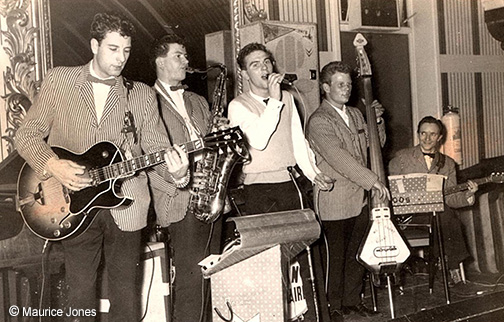
BIRMINGHAM
Updated August 2020
Maurice "Mo" Jones guitar, piano, organ
Wilf Clare bass guitar
Tom Russell guitar
John "Johnie" Walker drums (left in 1958)
Brian Sharpe drums (joined in 1958, left in 1962)
David Roberts lead vocal, guitar (left in 1961)
Maurice "Moss" Groves saxophone
Mickey Craven lead vocal (joined & left in 1961)
Michael "Micky" Bakewell lead vocal (joined in 1961)
Jim "Jimmy" Alexander saxophone (joined in 1962)
Tony Finister drums (joined in 1962, left 1966)
Ken Horden drums (joined in 1966, left 1967)
Terry Gray saxophone
Known to most of their many fans as "The Mods", this band was famous in dance halls across the West Midlands during the 1960s. They were formed during the "Skiffle" boom of the 1950s, but it was their ability to pack the dance floor while performing their own brand of American style "Rock 'n' Roll" that made them one of Birmingham's most successful performing groups.
"The Noisy Boys"
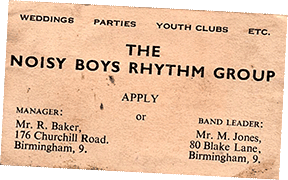
The origins of The Modernaires can be traced back to 1957 when jazz fan and skiffle enthusiast Maurice "Mo" Jones from Bordesley Green decided to exchange his acoustic guitar for an electric one. Home-made "Skiffle" music was very popular at the time as promoted by performers like "Lonnie Donegan" (see The Tremors) but American "rock 'n' roll" was starting to make an impact in the dance halls against which the low volume acoustic instruments played by skiffle bands could not compete.
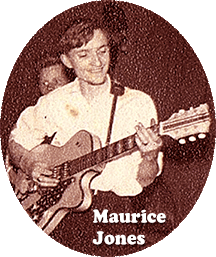
Wilf Clare who previously had his own band called "The Gladiators" was enlisted to play upright "double bass", Johnie Walker came in on drums, and Dave Roberts who also bought an electric guitar provided the lead vocals. It wasn't long before Tom Russell from Hall green was next to join as he also had an electric guitar.
It should be mentioned these early electric guitars were all "hollow body" or "archtop" designs as there were very few "solid body" electric guitars available in the UK at that time. They were all initially plugged into a primitive amplifier that took pride of place at "The Custard House" on Blake Lane in Birmingham where the band rehearsed.
Brian Sharpe from Brum's first rock 'n' roll group called "The Houn'dogs" led by pioneering vocalist Johnny Neal later replaced John Walker as their drummer. This early line-up was completed when saxophonist Maurice "Moss" Groves who lived in Yardley joined the group. At that time it was Maurice Jones who was managing the group and taking care of their bookings
John Woodhouse (no relation to this author) who worked with Maurice Jones recalled; "I first met Mo when I began my first job at the age of 15 in 1958. Mo was an electrician working for Williams Brothers of Sladefield Road. I was his apprentice and we would drive around the Midlands on contract work in his tatty old red and black van with hoardings along the side proudly displaying his group's name 'The Noisy Boys Rhythm Group', later to become The Modernaires."
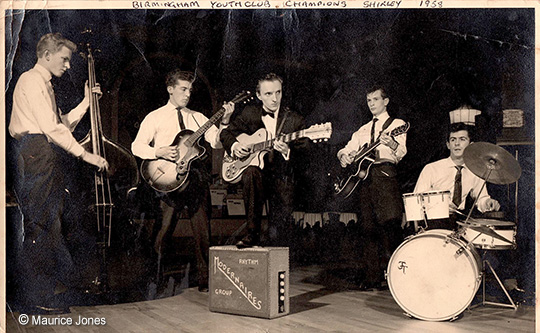
With the addition of more amplification, the rehearsals went well for the six-member band who were at first called "The Noisy Boys Rhythm Group". This was later changed to "The Modernaires Rhythm Group" and finally "The Rocking Modernaires". Note: there was another unrelated dance band also called "The Modernaires" who were already active around the West Midlands during this time.
The Rocking Modernaires went on to win first place at a "Skiffle" competition held at the annual carnival in Shirley, Warwickshire. It's interesting to note that the runners-up for second place were "The Saints and Sinners" and third place went to "The Rainbow Boys". These bands included Ray Thomas and Clint Warwick respectively - both future members of The Moody Blues.
Following a number of gigs in the area where they performed mainly at youth clubs, The Rocking Modernaires auditioned for Birmingham's prestigious "West End Ballroom". While there, they were spotted by West Midlands booking agent Mel Lees who was looking for a band to play at the recently opened Dorchester Ballroom in Wolverhampton. Mel was impressed and offered the group a regular gig there.
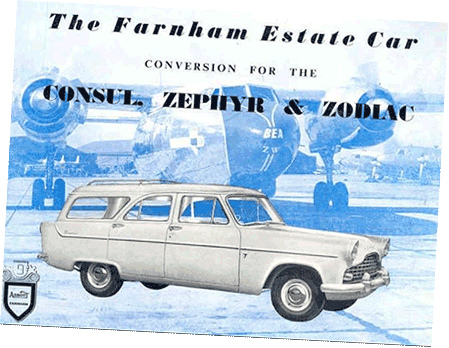
The Modernaires proved to be an immediate hit with the dancing public at The Dorchester where they refined their expertly played and larger-than-life rock 'n' roll sound. The band members worked day jobs and could afford their own transportation in the form of a second-hand bread van that guitarist Maurice Jones had purchased from the Wimbush bakery along with drummer Brian Sharpe's car that was a big American-looking Ford Farnham Estate.
A second regular engagement for The Rocking Modernaires followed at The Skala Cinema in Wolverhampton, and Mel Lees who now managed the group (and helped out with their gear), had them fitted with matching tailored stage suits from "Chetwyn's" on Navigation Street in Birmingham. Chetwyn's mens tailors went on to do a lot of business during the 1960s with the local bands.
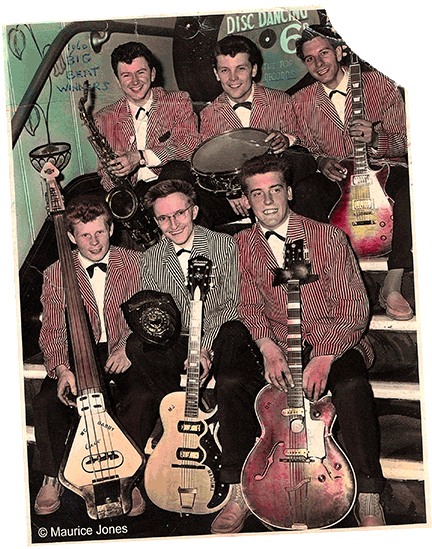
By the later 1950s there were many other rock 'n' roll groups forming throughout the West Midlands and these included The Vikings, The Starliners, and The Dukes. A band competition was held at The Casino Ballroom on Corporation Street in Birmingham to which Mel Lees entered The Rocking Modernaires. One of several other groups in the competition was called The Grasshoppers and they were another up-and-coming band.
It was The Rocking Modernaires who won the contest despite The Grasshoppers having two excellent lead vocalists who were Brenda Bosworth and Micky Bakewell, plus drummer Tony Finister. The Grasshoppers took second place with singer Gerry Day coming in third. This victory gained The Modernaires many other bookings throughout the city including the hip "Firebird Club" on Carrs Lane and the impressive "Swan" public house in Yardley that went on to book famous groups from all over the country.
The dawn of the 1960s saw an increase in the number of home-grown British rock 'n' roll stars. Tommy Steele had got to Number One in the charts in 1957 with 'Singin The Blues'. In 1958, "Cliff Richard and The Drifters" recorded their first hit single titled 'Move It', considered by many to be the first UK rock 'n' roll record. "Johnny Kidd and The Pirates" recorded their ground-breaking 'Shakin' All Over' in 1960, and young vocalists like "Billy Fury", "Joe Brown", and "Adam Faith" were making a big impact on the record charts.
"We'd drive up and down the front, shouting at the birds to come and have a jive tonight to The Modernaires!"
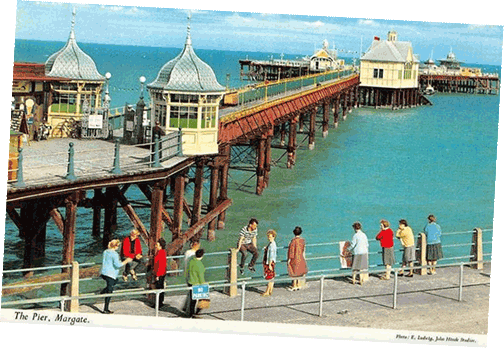
The Rocking Modernaires found themselves more in demand than ever and this included a 1960 summer season at the popular resort town of Margate on the south east coast. There they packed the pier ballroom night after night, much to the dismay of the owners of other nearby competing dance halls. Mel Lees recalled; "Them Londoners couldn't cop their breath. They were still stuck in skiffle and all that 'Knees Up Mother Brown' stuff!"
The group's Margate success may have also been due to the efforts of Mel Lees and drummer Brian Sharpe who attached advertising boards to the roof rack of his car. Mel said; "We'd drive up and down the front every morning, shouting at the birds to come and have a jive tonight to The Modernaires! Every night we packed em in."
Word of the Mod's seaside success reached aspiring young Birmingham vocalist Steve Gibbons of "The Dominettes" who along with band-mates Jim Holden and Roy Bates went down to Margate to check things out. They were invited up on stage by The Modernaires to perform some numbers with the band, and ended up staying down there a few nights where they enjoyed every minute.
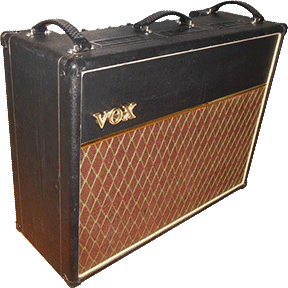
Along with increasing numbers of bookings, another sure sign of The Modernaire's growing success was the purchase of new instruments which included the latest VOX amplifiers and American made Gibson and Gretsch guitars. Wilf Clare had previously bought a revolutionary "Futurama" stand-up electric bass to replace his long-suffering double bass that was struggling to keep up with the volume now required on stage. He also became the proud owner of a highly-coveted "Fender Precision" electric bass guitar.
Not all the gigs went so well however. In June 1960 while performing one night at The Skala in Wolverhampton, the Mods were dismayed to find the popular manageress there was to be dismissed. In protest, the group stopped playing but were then ordered to leave. As they packed up their equipment, the punters gathered outside and demanded refunds. Mel Lees said; "There was a bit of pushing and shouting, and the next thing I know I'm sailing through the air and straight through a plate glass window!" Mel spent the night in hospital but the band escaped unscathed.

As with many groups who experience a level of success, inflated egos can cause trouble. Shortly after the unfortunate incident at The Skala, disagreements within the group resulted in Mel Lees being given the unenviable task of dismissing lead vocalist Dave Roberts from the line-up. Mel refused and then resigned as their manager after more than three years of expertly guiding the group from unknowns into a big draw attraction. He went on to manage "The Dominettes" who later became The Uglys.
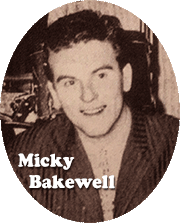
Now with their lead guitarist Maurice Jones stepping up to manage the group, a new vocalist named Mickey Craven was selected to front The Modernaires but for whatever reason, he was found to be unsuitable after only a few months. Micky Bakewell from their rivals The Grasshoppers was then discussed as a possible replacement.
A talented vocalist, Micky recalled; "I used to love cycling as a boy and gave that up to concentrate as an amateur wing-half with Birmingham City. But if you didn't train, then you didn't play, and I was always gigging with The Grasshoppers. Wilf Clare from The Modernaires called me and asked me down to the Sailor's Return pub at the bottom of Garrison Lane. They were all set up in the upstairs assembly room and I did Elvis's 'Mess Of Blues'. I then had a pint at the bar with the lads and they offered me the job and I accepted."
"It's about time you got a decent band in here"
By 1961, the husband and wife team of Joe and Mary Regan were operating successful dance halls at Handsworth Plaza and The Ritz Ballroom in King's Heath. Joe recalled a night at the Ritz when one of the dancing crowd shouted out; "Oy Regan, it's about time you got a decent band in here!" I asked him to recommend one and he told me about this Modernaires band that were playing at The Swan in Yardley every Monday and Thursday."
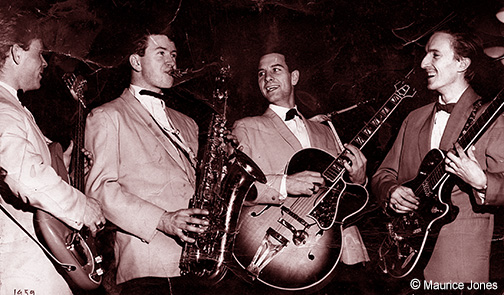
Joe Regan went to The Swan to see the Modernaires perform and meet the group. He said; "I booked them on the spot. I don't know if I liked the rock 'n' roll they were playing, but I was sure it would go down well in my ballrooms." He was to be proven correct as The Rocking Modernaires played to enthusiastic audiences at all four Regan venues in the West Midlands.
In 1962, drummer Brian Sharpe left The Modernaires to join "The Rockin' Jaymen" who went on to record for EMI as Pat Wayne and The Beachcombers. He was replaced by Tony Finister from Micky Bakewell's previous band The Grasshoppers. This most well known line-up of The Modernaires was increased to seven members with the addition of a second saxophonist Jimmy Alexander who had previously played with legendary Brum vocalist Danny King.
The Modernaires also expanded their sound with an electric organ played by Maurice Jones who gradually turned over his lead guitar duties to Tom Russell and they were now able to duplicate records like 'Telstar' by "The Tornados". Mo used the organ bass pedals to good effect when they performed instrumentals like 'Diamonds' by "Jet Harris and Tony Meehan" while Wilf Clare played lead on his Fender Precision.
Steve Gibbons remembers seeing The Modernaires perform at The Ritz in King's Heath. He recalled; "They had an echo chamber. Nobody had an echo in those days and it made them sound like nothing on earth, it was incredible! Their saxophone player Moss used to do 'Rockin' Goose' and he'd do the goose sound by taking the mouthpiece off his sax and just blowing down that into the mic and with the echo on full. It used to bounce around the Ritz like nobody's business!"
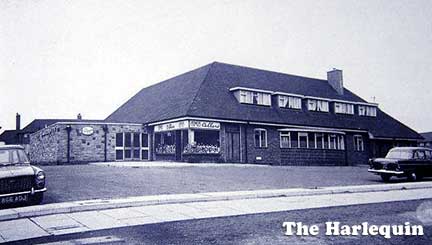
Another young Birmingham musician named Jeff Lynne who played in a band called The Andicaps was also a fan of The Modernaires. Their drummer Dave Walsh recalled; "The Harlequin Pub was roughly halfway between my house and Jeff's. The Modernaires were the resident band and other groups also played there on Tuesday nights. All the Andicaps were too young to get in so me and Jeff would hang around the doors outside immediately adjacent to the bandstand and were able to get a good listen."
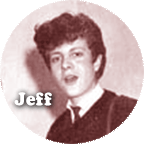
"It also afforded the opportunity to talk to the bands when they loaded and unloaded their gear into the pub. We were soon able to blag our way in and always stood 'nerdlike' right in front of the band so Jeff could see what "Mo" (Maurice Jones) was playing on lead and I could drool over the subtleties and completely effortless relaxed style of Tony Finister's playing."
Brian Nicholls who later formed Varsity Rag said; "My bandmates and I were all fledgling pickers in what was to become in 1963, The Fleetwoods. We attended The Ritz every Saturday and Sunday nights from 1962 when The Modernaires were the resident band. We used to chat to guitarist Tom Russell during the break and he was always interested in what we were doing ("What new numbers have you learnt this week lads?") Tom would always give us playing tips and stress that we must always practice our scales (which didn't go down too well). The Modernaires were a class act and role models for all who aspired to a musical career."
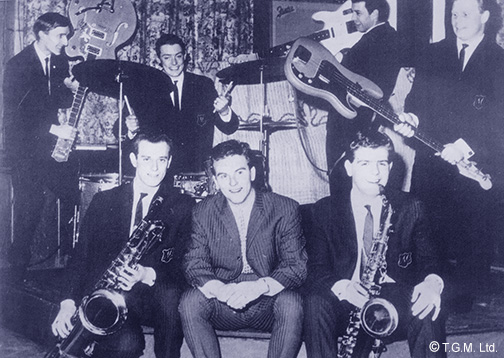
The years 1963-64 saw a major revolution in British popular music with the new "Mersey Sound" (or "Mersey Beat" named after Bill Harry's influential music paper) that was spearheaded by the massive success of The Beatles and other Liverpool area bands. The big record companies based in London looked to the north in search of similar sounding groups. The West Midlands and Birmingham became a focus of attention with the word "Brum Beat" coined to promote bands from the area.
When interviewed at the time Micky Bakewell said; "We change our style to suit the trend, but we will never reduce the number in the group. This way we get the best of both worlds. We can do the big Bobby Darin type numbers I love, and we can beat out Rhythm and Blues even louder and beatier than the guitar foursomes!"
The Modernaires almost got to play support for The Beatles at The Ritz Ballroom in 1962. The Mods were on the same bill but Mary Regan asked them to play at The Plaza Ballroom at Old Hill instead to replace the support band who had cancelled. Micky Bakewell remembers; "We ended up playing with The Walker Brothers that night. That was a big draw to us and an easy decision to make because we didn't even know who The Beatles were. Looking back, that was one of our big regrets, but there aren't that many acts from the era that we haven't played with."
"Something On My Mind"
While The Modernaires missed out on the famous "Moat House" auditions held in Birmingham by Norrie Paramor of Columbia Records in June of 1963, Joe and Mary Regan brought the group to the attention of Decca Records. The feisty and much loved "Ma" Regan had already helped The Redcaps, and Carl Wayne and The Vikings on their way to securing recording contracts.
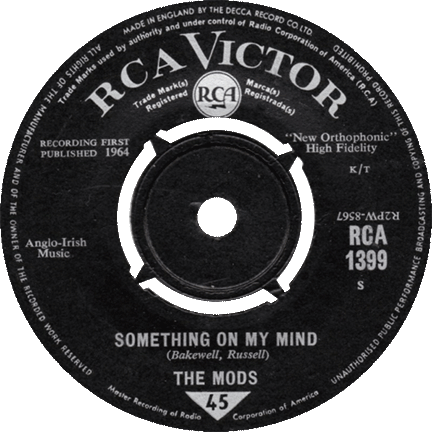
An American named Pat Campbell who worked for Decca, was persuaded to check out The Modernaires performing at the Regan's "Brum Kavern" in Small Heath early in 1964. Mickey Bakewell said; "Pat Campbell liked the Mods but asked us if we had any original songs. I'd had a go and written one called 'Something On My Mind'. Our guitarist Tommy Russell had put the chords to it. Pat thought it was okay and asked me to write another song for a possible B-side should we get to make a record."
Mickey Bakewell and Tom Russell came up with 'You're Makin' Me Blue' which along with 'Something On My Mind' was added to their set in time for Pat Campbell's next visit to Birmingham where they performed at The Ritz Ballroom in King's Heath. Pat was impressed and arranged for The Modernaires to record both songs at the main Decca studios in London.
With the band not used to the technicalities of the recording process, Mickey Bakewell recalls the experience; "It took nine hours of numerous takes and different arrangements of 'Something On My Mind' before the Decca people were happy. I thought my head had caved in. Fortunately we just thundered through 'You're Makin Me Blue' and listening to it now, I wish it had been the A-side."

The Modernaires debut single was issued on May 8th, 1964 on Decca's American "RCA Victor" record label that was a welcome surprise for the band when they realized it was the same label used by Elvis Presley. However, the group's name on the 45 was shortened to "The Mods" to avoid conflict with an American recording group that had the same name. This may have caused some confusion amongst the Modernaires fans at the time!
Promotional photos were taken of the band sitting on motor scooters but this possibly attracted the wrong kind of publicity when considering current media reports of violent conflicts between rival gangs of teenage "Mods" and "Rockers". Mick Bakewell said; Just after we changed, there were all these gang punch-ups between the Mods and Rockers. We worried that people might think we were encouraging that kind of thing in some way."
Jim Alexander said; "People outside the Midlands who have not seen us before probably expect a crowd of 'Ready Steady Go' types in T-shirts and sneakers. We're not of course. We wear plain suits, drive cars, and can hardly tell a Mod from a Rocker!"
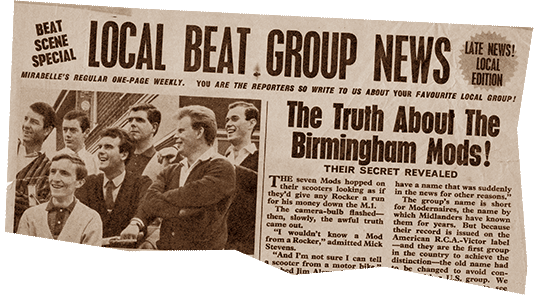
Teenagers who identified themselves with "Mod" culture would have been more into "Soul" or "Tamla Motown" type of music, while the "Rockers" liked Elvis, Jerry Lee Lewis, and Gene Vincent. When listening to The Modernaires single now, 'Something On My Mind' comes across as more of a radio-friendly "pop" ballad - similar in style to what "Cliff and The Shadows" would have recorded. The B-side 'You're Making Me Blue' is more of a "rocker" and likely a better example of what The Modernaires sounded like on-stage at the time.
The Mod's record started to sell well locally, due in part to the band's TV appearances on popular shows like Manchester's "Gazette", "Juke Box Jury", and "Thank Your Lucky Stars" that was produced for ATV in Aston, Birmingham. The record release of course served to boost the group's profile considerably and they were now able to advertise themselves as "RCA recording artists" much to the delight of Joe and Mary Regan.
"When our record never made the charts I didn't know whether to laugh or cry"
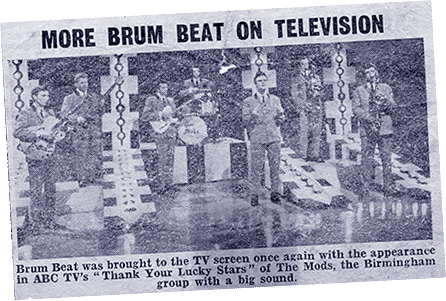
The booking fees for The Modernaires increased as did their growing number of fans. Radio Luxembourg started to play their single and the group's new London-based manager Phil Solomons, who also managed hit groups "Them" and "The Bachelors" wanted to send them on a country-wide tour.
Mickey Bakewell said; "Phil was pushing us to hit the road but he was also aware that we had responsibilities at home. I was at the Drews Lane factory in Washwood Heath as a skilled tool maker. It was unheard of to walk out of there. When our record never made the charts I didn't know whether to laugh or cry. The decision was made for me."
It turned out The Mods were happy to stay in Birmingham where they remained "semi-professional" and history shows it was most likely the right decision for them. Enjoying the best of both worlds, the band rubbed shoulders with the stars while not having to endure the endless cross-country one-nighters, sharing small rooms for the night and driving long miles in all weather while packed into a van with their equipment.
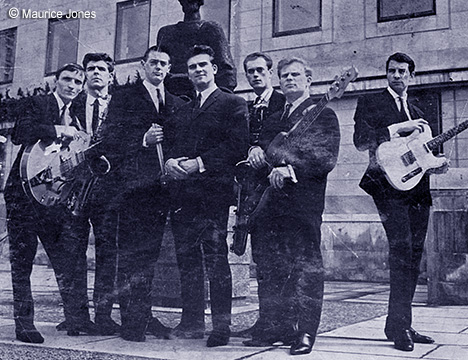
Joe Regan recalled; "They never stopped working. I had The Animals at The Ritz when they were Number One with 'House Of The Rising Sun'. Eric Burdon their singer asked me who owned the flash cars that were parked in York Road. I had to tell him they all belonged to The Modernaires!"
In 1966, drummer Tony Finister left The Modernaires and was replaced by Ken Horden who was from a West Midlands band called The Shanes. A year later, Ken left to help form Varsity Rag and he was replaced but there were to be a number of changes in the line-up during the next several years.
Founding group member Maurice "Mo" Jones left the band in 1968 to go and live in Polesworth near Tamworth. He said; "I moved because my middle daughter was knocked down by a car outside the house in Blake Lane and I decided it was no longer safe. I still continued to play at local clubs in that area solo on the Hammond organ for a couple of years until I left for Australia in January 1971 to join my brothers and sister. They kept trying to entice me to join them and said that I could make a good living in music out there. That was the best move I have ever made and it did not take too long to get back into music."
Guitarist Tom Russell had also left the Modernaires by the end of the 1960s. He went on to form a line-up called "The Jacey Four" who performed locally. They later became "The Barry John Combo" and finally "Driftwood". Tom continued to work at the Rover factory in Solihull until he retired.

The Modernaires would go on to perform high-profile gigs over the next decade. During the 1970s they had five year bookings at two well-known Brum nightclubs - "La Dolce Vita" and "The Cavendish". Wilf Clare said; "We used to play on bills with stars like Freddie Starr, Bob Monkhouse, Bruce Forsyth, Les Dawson, Lulu, and Norman Wisdom. We could be working until 2 am, but because we had to be back at work for 6 am, we'd sometimes just sleep in the dressing rooms!"
By the time The Modernaires last gig took place in the early 1990s, bass guitarist Wilf Clare was the only remaining original group member. Wilf continued to play bass part-time while working a job selling and maintaining vending machines before retiring and is now a keen golfer.
Brian Sharpe, who was almost the first drummer to play in The Modernaires operated a successful dance school in Solihull for many years. He now claims to be the oldest professional Disk Jockey in Birmingham who performs under the name "The Vinyl Man". Micky Bakewell who now enjoys gardening has no regrets and said; "We've got nice houses and families, and we've had interesting jobs that we liked. I loved toolmaking for 41 years at the Rover."
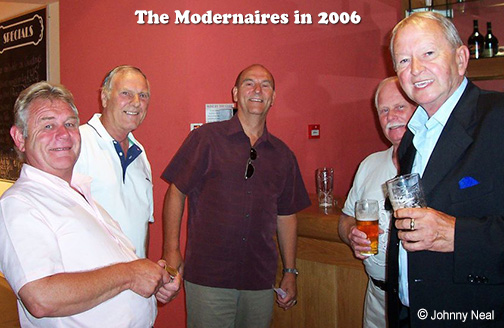
The 2006 photo shown here and taken by Brum Beat legend Johnny Neal shows a reunion of The Modernaires at the Yew Tree Bar and Restaurant in Yardley, Birmingham, on the occasion of celebrating Johnny Neal's 50 years in showbusiness. Pictured left to right are; Wilf Clare, Tom Russell, Micky Bakewell, Mick's brother Roy, and Maurice Groves.
In July 2012, The Modernaires were one of the local groups enshrined by the Birmingham Civic Society at the "King's Heath Walk of Fame" near the site of The Ritz Ballroom. Their name with The Moody Blues and Robert Plant appears on a metal sign alongside those of The Beatles, The Rolling Stones, The Kinks, and The Pink Floyd.
The recent discovery of a long-lost live performance of The Modernaires, recorded on tape by Mods fan Douglas Gould at the "The Forest Inn" at Bromsgrove in December 1962 was reported in the Birmingham Mail and sparked renewed interest in the band. With so many of their fans now sharing memories of the group on social media platforms, it could be that the story of The Modernaires is not quite over yet!
Copyright © John R Woodhouse
If you would like to contribute to this page, please e-mail john@brumbeat.net
Sources: 'Brum Rocked!' and 'Brum Rocked On!' books by Laurie Hornsby (1999, 2003) including some selected quotes; 45CAT - Vinyl Database www.45cat.com; Birmingham Mail story and interviews by Graham Young, April 2012; "Old Pics of Brum" facebook group; Special thanks to Maurice Jones for information and sending wonderful group photos. Thanks also to Wilf Clare, Dave Walsh, Brian Nicholls, and Laurie Hornsby for assistance in writing this bio.
The Mods 1960s Record Releases
Singles: